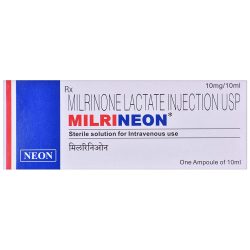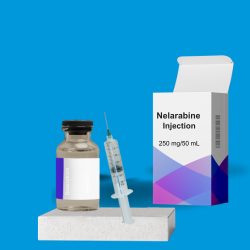Description
Uses of Ipilimumab:
Ipilimumab is a monoclonal antibody medication is used:
- In order to treat a type of skin cancer called melanoma.
- In people with kidney cancer (renal cell carcinoma) together with the nivolumab.
The medication is undergoing clinical trials for the treatment of non-small cell lung carcinoma (NSCLC), small cell lung cancer (SCLC), bladder cancer and metastatic hormone-refractory prostate cancer.
Dosage: Ipilimumab injection alone is given to you into your vein through an intravenous (IV) line over 90 minutes.
When Ipilimumab is used together with the nivolumab, nivolumab is given to you into your vein through an IV line over 30 minutes. Then Ipilimumab is also given through an IV over 30 minutes on the same day.
Ipilimumab together with nivolumab is usually recommended every 3 weeks for 4 doses. After that, the drug nivolumab is usually given alone every two or four weeks.
In case of drug overdose, immediately call your healthcare provider.
Treatment Reactions:
The most commonly reported ipilimumab side effects include:
- fatigue
- diarrhea
- pruritus
- rash
- colitis
- nausea
- vomiting
- headache
- weight loss
- pyrexia
- insomnia
- decreased appetite
Warnings and Precautions:
- Patients should be monitored due to an increased risk of gastrointestinal bleeding if they are taking anticoagulants with ipilimumab.
- Breastfeeding should be discontinued during the treatment with yervoy.
- The liver function tests should be evaluated prior to each ipilimumab dosage.
- Clinical chemistries, ACTH level, and thyroid function tests should be monitored prior to each dose.
- Blood tests should be performed prior to starting and during treatment with Ipilimumab injection.
- Inform your doctor prior to use of Ipilimumab 50 mg/10 ml if you have had an organ transplant or have liver problems.
- Females with childbearing potential should avoid becoming pregnant while on Ipilimumab 50 mg/10 ml medicine.





